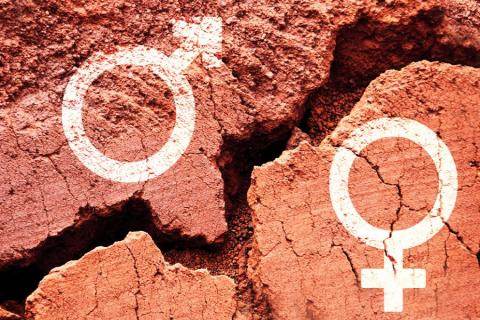- Rephrase the current obligatory sentence in the text of job vacancies from “Women will be preferred in case of equal qualification” to, for instance, “Gender cannot act as a factor advantaging or disadvantaging a candidate. The Department of Information Systems is a place without gendered tasks, we believe that all genders can do the same job at our Department.”
- Ideation
- >30.04.17
- Reviewing
- >
- Voting
- >13.06.17
- Implementation
Negative attitude (of both men and women) towards positive discrimination actions promoting women (e.g., quotas)

It is often perceived by both male and female staff members, as well as students, that positive discrimination actions, such as gender parity quotas in committees and decision-making bodies, as well as in target values for hiring staff, are doing more harm than providing value.
On the one hand, many women feel the danger of being unfairly promoted based on their gender, not their capabilities, or being accused by their male colleagues that they received promotion only because they are women. On the other hand, many men feel disadvantaged or discriminated. Results of the internal gender audit show that the only events and interventions, where gender-based exclusion is observed, are those for women only.
Furthermore, gender parity quotas in committees and decision-making bodies create excessive additional workload for female professors in the areas where women are under-represented, which is often perceived as hindering career progress rather than supporting it.
It is important to think about the strategies how the unintended negative perceptions and impacts of positive discrimination actions could be avoided. In order to enable sustainable changes in the gender equality area, a broad support is crucial.
It is also important to highlight that the phenomenon of the low share of women at all levels at the Department of Information Systems is only partly perceived as a problem to be tackled. Some staff members agree that it is indeed an issue, while others rather perceive the low share of women as “natural” and “normal”, i.e. that women are just not interested in IT due to their innate characteristics. A possible underlying reason here is that gender equality has already been largely achieved in Germany. Here measures to raise awareness will be needed at all levels to sensitise staff members, as well as students, why this is an issue to be tackled, what are the far-reaching negative consequences of under-representation of women in IS, what are the real roots of the perceived ‘lack of interest’ etc.


- Allow both women and men to become equal opportunities officers.
Note: Implementation of this idea might not be feasible, but the results of voting will be communicated to the Equal Opportunities Office at the University of Muenster (WWU) to be communicated further at the state and country levels.
- Propose changes to existing regulations to the Equal Opportunities Office at the WWU to be considered and maybe communicated further to the state and country levels.

- Revise the regulations related to gender parity quotas in committees and decision-making bodies.
Note: Implementation of this idea might not be feasible, but the results of voting will be communicated to the Equal Opportunities Office at the University of Muenster (WWU) to be communicated further at the state and country levels.
- Propose changes to existing regulations to the Equal Opportunities Office at the WWU to be considered and maybe communicated further to the state and country levels.
- Revise the regulations related to gender parity quotas in committees and decision-making bodies.
Note: Implementation of this idea might not be feasible, but the results of voting will be communicated to the Equal Opportunities Office at the University of Muenster (WWU) to be communicated further at the state and country levels.
- Propose changes to existing regulations to the Equal Opportunities Office at the WWU to be considered and maybe communicated further to the state and country levels.
- Allow both women and men to become equal opportunities officers.
Note: Implementation of this idea might not be feasible, but the results of voting will be communicated to the Equal Opportunities Office at the University of Muenster (WWU) to be communicated further at the state and country levels.
- Propose changes to existing regulations to the Equal Opportunities Office at the WWU to be considered and maybe communicated further to the state and country levels.
- Rephrase the current obligatory sentence in the text of job vacancies from “Women will be preferred in case of equal qualification” to, for instance, “Gender cannot act as a factor advantaging or disadvantaging a candidate. The Department of Information Systems is a place without gendered tasks, we believe that all genders can do the same job at our Department.”
Users 3 | Votes 1 | Comments 7 |


